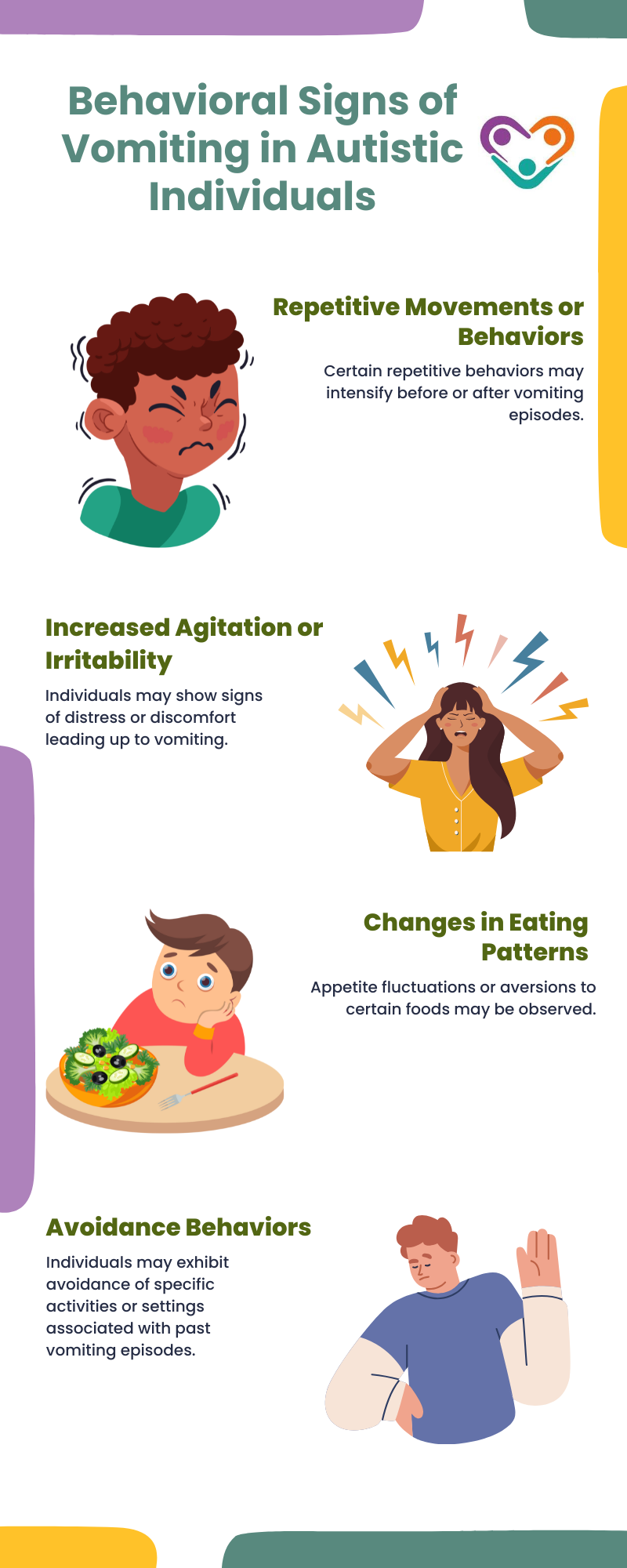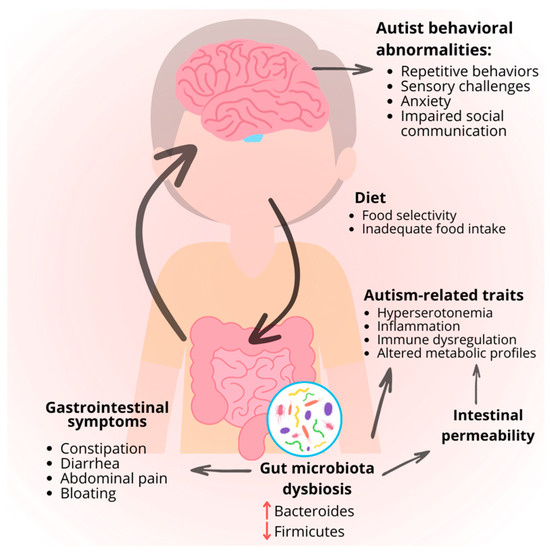Does Autism Behavioral Therapy work long term? We explain
Does Autism Behavioral Therapy work long term? We explain
Blog Article
Recognizing the Effect of Behavioral Autism on Daily Life and Social Communications
You might not understand how deeply behavioral autism affects day-to-day life and social communications. People on the range typically browse a world filled with interaction hurdles and sensory overload. These difficulties can lead to aggravation and isolation, influencing their relationships and total well-being.
Defining Behavior Autism and Its Qualities
Behavioral autism, usually referred to as autism spectrum problem (ASD), incorporates a variety of conditions identified by difficulties in social interaction, communication, and repetitive actions. You may observe that individuals with ASD often struggle to interpret social signs, which can result in misunderstandings in conversations. They may find it tough to develop eye contact or take part in small talk, making social scenarios feel overwhelming.
Interaction difficulties can show up in various methods, from delayed speech advancement to a choice for making use of fewer words. By acknowledging these characteristics, you can foster a setting that advertises acceptance and urges effective interaction, assisting people with autism flourish in their daily communications.
The Range of Autism: Recognizing Irregularity in Habits
Autism range problem (ASD) isn't a one-size-fits-all diagnosis; it varies widely amongst individuals. You could see that some people with ASD exhibit mild signs and symptoms, while others may encounter a lot more substantial obstacles. This irregularity can show up in actions, interests, and sensory level of sensitivities. You might experience people that are highly spoken and engage conveniently in conversations, while others might favor singular tasks or interact non-verbally.
Furthermore, the method individuals with ASD react to sensory input can differ substantially; some may be bewildered by loud noises or brilliant lights, whereas others prosper in boosting settings. The spectrum likewise consists of differences in social communications; some people might battle to interpret social hints, while others browse social settings with loved one convenience. Recognizing this irregularity is essential, as it helps you value everyone's distinct experience and dressmaker support to their particular demands, cultivating an extra inclusive setting for every person.
Communication Obstacles Encountered by Individuals With Autism
When you interact with individuals on the autism range, you may see their distinct interaction difficulties. They typically encounter problems with both nonverbal and verbal hints, which can impact their social interactions. Recognizing these barriers is essential for promoting far better connections and assistance.
:max_bytes(150000):strip_icc()/VWH-LauraPorter-SpectrumOfAutismTraits-4000x2700-0b5d3311e5794f6ca7e72bdc4672eae5.png)
Verbal Interaction Difficulties
Many people on the autism range experience verbal interaction troubles that can substantially affect their everyday communications. You may locate it testing to express your ideas, sensations, or requires plainly. This can cause aggravation for both you and those around you, as misunderstandings take place. You may struggle with initiating discussions, keeping a topic, or understanding subtleties in speech. Usually, you may choose using basic language or repetitive expressions, which can limit your capability to take part in deeper conversations. Your tone, speed, or volume could not line up with social expectations, creating others to misinterpret your intentions. Acknowledging these difficulties can help you and your assistance network establish approaches to improve interaction and foster better links with others in your day-to-day live.
Nonverbal Communication Barriers
Verbal interaction isn't the only difficulty people on the autism spectrum face; nonverbal interaction obstacles can be just as significant. You might find it difficult to analyze body language, faces, and eye contact, which are vital for reliable interaction. These challenges can result in misconceptions or false impressions of social hints, making communications feel complex or frustrating. You may struggle to reveal your very own emotions via nonverbal ways, leaving others unsure of your objectives or sensations. This detach can produce sensations of isolation and stress. Acknowledging these obstacles is vital for cultivating understanding and empathy in your interactions. By attending to nonverbal interaction, you can locate techniques to boost your social experiences and enhance your general lifestyle.
Social Interaction Impacts
Social communications can frequently really feel frustrating as a result of the unique communication challenges dealt with by people with autism. You could have problem with interpreting social cues, making it difficult to comprehend sarcasm or body language. This can result in misunderstandings or unpleasant minutes in discussions. In addition, launching and keeping conversations might really feel challenging, causing anxiousness in social scenarios. You may like structured settings, making spontaneous communications uneasy. It's likewise typical to experience trouble in engaging in little talk, which can hinder developing brand-new relationships. Acknowledging these challenges can help you locate strategies to boost communication, such as practicing social abilities in secure settings or using aesthetic help - Autism Behavioral Therapy. Understanding your needs allows you to browse social interactions with greater confidence and convenience.
Social Interaction and Partnership Structure in Autism
While building partnerships can be challenging for people with autism, understanding their one-of-a-kind point of views and communication designs can cultivate significant connections. You could notice that many individuals on the range choose straight communication and may have a hard time with social cues or tiny talk. By being straightforward in your communications, you can help create a setting where they really feel comfortable.
Put in the time to observe and listen how they express themselves. This understanding can direct you in steering conversations extra properly. Taking part in shared interests can likewise act as a bridge to deeper connections. Whether it's a pastime, a favorite program, or a shared news passion, these usual strings can open doors to relationship.
Day-to-day Live Routine: Navigating Strategies and challenges
Steering every day life regimens can be specifically challenging for people with autism, particularly when unanticipated adjustments take place. You could find comfort in having a structured timetable, as it assists you expect what's following. It's normal to really feel overloaded or anxious when disturbances occur. To navigate these challenges, consider implementing aesthetic routines or lists. These tools can provide quality and peace of mind.
Developing a regimen that includes sensory breaks can likewise be beneficial. This assists develop an understanding environment.
Finally, technique mindfulness techniques to handle tension and stress and anxiety. Simple breathing workouts or basing techniques can make a substantial difference. By integrating these strategies, you can improve your day-to-day regimen and reduce interruptions, making life really feel more workable.
Staminas and Capabilities of People on the Autism Spectrum
Comprehending everyday life regimens is just one aspect of the autism experience. Several people on the autism range have exceptional toughness and capabilities that set them apart.
Additionally, your memory abilities typically beam, specifically in locations of passion. Aba Therapist Near Me. This flair for maintaining info can make you an important resource in areas like innovation, art, or science. You may additionally display solid visual reasoning, allowing you to envision complicated concepts and address troubles creatively
Furthermore, your special viewpoint on the globe can promote empathy and understanding in others, improving social communications. Accepting these strengths not just improves your confidence however additionally aids others appreciate the varied talents you give the table.
Creating Comprehensive Settings for Individuals With Autism
Creating inclusive settings for people with autism starts with designing sensory-friendly areas that cater to their one-of-a-kind requirements. You can also cultivate opportunities for social communication, helping to construct connections and relationships. By making these modifications, resource you'll contribute to an extra inviting atmosphere for every person.
Creating Sensory-Friendly Spaces
While making sensory-friendly rooms, it's crucial to reflect on the unique needs of individuals with autism. Integrate silent zones where individuals can charge and retreat when overwhelmed. Consist of aesthetic schedules or clear signage to help individuals browse the space with confidence.
Advertising Social Interaction Opportunities
Designing sensory-friendly spaces not just addresses specific comfort however additionally establishes the stage for purposeful social interactions among people with autism. Motivate peer mentoring, matching people with autism with supportive peers who can assist them with social scenarios. By carrying out these approaches, you can enhance social chances, aiding people with autism build friendships and enhance their social abilities in a secure, inviting atmosphere.

Regularly Asked Questions
How Can Buddies Support Somebody With Behavioral Autism?
You can support a check here close friend with behavior autism by being patient, listening proactively, and valuing their borders. Take part in tasks they appreciate, connect honestly, and produce a comfortable atmosphere where they really feel valued and understood.
What Resources Are Readily Available for Moms And Dads of Children With Autism?
You can check out various sources for moms and dads of children with autism, consisting of support system, instructional sites, and local social work. Attaching with various other parents can additionally offer valuable understandings and shared experiences to help browse challenges.
Can Behavioral Autism Adjustment In Time?

Yes, behavior autism can change over time. You might observe changes in communication, social abilities, and behavior as your kid expands. Early intervention and support frequently play essential roles in these developmental adjustments.
Just How Do Sensory Level Of Sensitivities Affect Every Day Life?
Sensory sensitivities can make day-to-day experiences frustrating. You might have a hard time with loud sounds or bright lights, causing stress or avoidance. Discovering atmospheres that suit your demands can greatly enhance your convenience and total day-to-day live.
What Prevail Misconceptions Regarding Behavioral Autism?
You may believe behavior autism just influences interaction abilities, yet it's even more facility. Several think people do not have compassion or intelligence, which isn't true. Recognizing these misconceptions aids foster approval and assistance for those on the range.
Behavioral autism, typically referred to as autism spectrum problem (ASD), incorporates a range of conditions defined by difficulties in social communication, communication, and repeated behaviors.Social communications can often really feel frustrating due to the special communication challenges faced by people with autism.Creating sensory-friendly areas not only addresses individual comfort but also establishes the stage for significant social interactions amongst individuals with autism. Motivate peer mentoring, matching individuals with autism with encouraging peers who can direct them through social scenarios. By applying these methods, you can boost social opportunities, helping individuals with autism build relationships and reinforce their social skills in a safe, inviting atmosphere.
Report this page